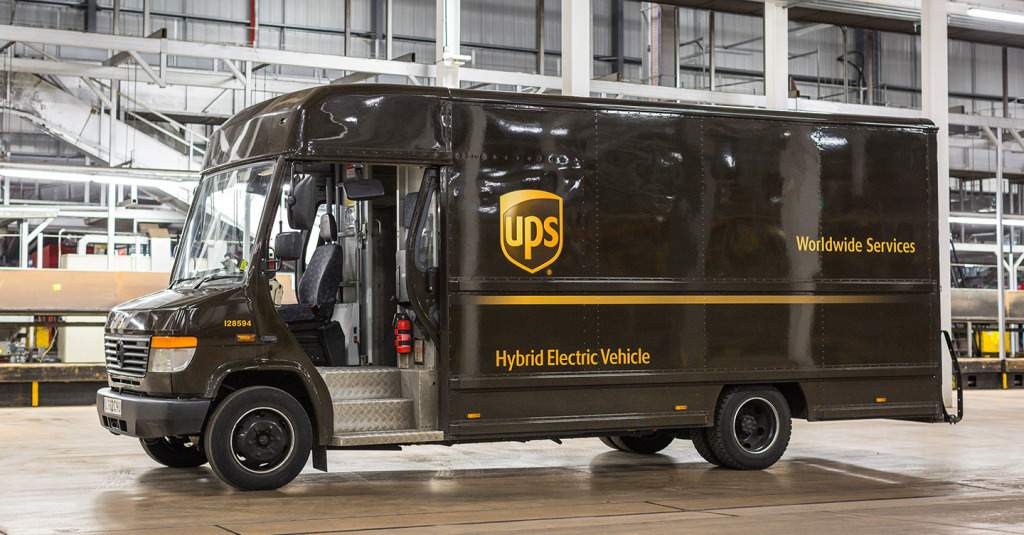Subscriber Benefit
As a subscriber you can listen to articles at work, in the car, or while you work out. Subscribe NowUnited Parcel Service, the world’s biggest publicly traded package courier, is in negotiations with the International Brotherhood of Teamsters to renew the largest private-sector union contract in the U.S.—a five-year accord that covers about 340,000 workers.
The current National Master United Parcel Service Agreement, a 200-page document that provides wage rates and work rules, expires on July 31. Teamsters leadership obtained strike authorization in a membership vote in June and will be free to call a strike as early as Aug. 1. Teamsters President Sean O’Brien won election in 2021 by promising to negotiate tougher terms with UPS.
1. What are the sticking points?
Money is a main point of contention. The two sides are at loggerheads over wage increases for part-time workers, who make up roughly half of UPS’s unionized workforce in the U.S. The starting UPS part-time wage is now a minimum of $16.20 as mandated for federal contractors. UPS’s offer to raise part-time wages amounts to “crumbs,” according to O’Brien. (That offer hasn’t been made public.) UPS pays pension and health-care benefits to part-time employees, making it among only 7% of private-sector companies that do so.
2. What issues have been resolved?
The Teamsters union racked up several wins at the bargaining table before talks stalled on July 5. These included a paid day off for the Martin Luther King holiday and a commitment for air conditioning on new delivery trucks beginning next year. (As of now, those iconic brown, square trucks don’t have air conditioning.) O’Brien also kept a campaign promise by forcing UPS to eliminate a new category of driver that was approved in the last contract. These so-called flexible drivers earned less than regular drivers and could work weekends and inside facilities to load packages.
3. Do workers support a strike?
Teamsters for a Democratic Union, a faction within the union that helped O’Brien win his election, remains upset about the last deal and are eager to strike. That 2018 contract was negotiated by former Teamster President James P. Hoffa, son of the infamous Teamsters leader who disappeared in 1975. Though 54% of UPS workers voted to reject it, Hoffa ratified the 2018 contract, citing a clause in the union’s constitution that says rejection requires a two-thirds majority if turnout is less than 50%. (In 2021, union members voted to eliminate that clause.) While O’Brien may have motives to appease his strongest base with a short strike, he would also like to conserve the Teamsters’ war chest to fund an effort to organize Amazon.com Inc. warehouse workers. A strike would immediately draw down that war chest, because a revised Teamsters policy calls for workers to receive a stipend from the first day of a strike instead of waiting about a week for support. O’Brien says he intends to hold up the UPS contract as an example of how his union can improve pay and working conditions for Amazon warehouse workers.
4. What impact would a strike have?
Both businesses and consumers would feel the impact. UPS handles roughly 28% of the 75 million packages delivered in the U.S. on a typical day, split about equally between businesses and homes. The last time UPS workers struck 26 years ago, the industry delivered 16 million packages per day, and UPS accounted for about 70% of the volume. There are now more competitors, including a much larger FedEx and a U.S. Postal Service that has ramped up package capacity to make up for the long decline in letter demand. Still, it would be difficult for them, along with regional carriers and delivery startups, to absorb UPS’s business. Though Amazon delivers most of its own packages, it’s also UPS’s largest customer, accounting for about $11 billion of the courier’s $100 billion of sales last year. The economic impact of a strike would be immediate, unlike in some industries, such as autos, where inventories can be built up ahead of time or be refreshed by imports. UPS said it would train non-union employees to help deliver packages in the event of a strike.
5. Can the government intervene to end a strike?
President Joe Biden and the U.S. Congress intervened to stop a railroad strike in December. But railroads are governed by the Railway Labor Act, which specifically calls for such action if mediation fails. UPS’s union workers aren’t subject to this restrictive labor law. Biden could invoke emergency provisions under the Taft-Hartley Act, as former President Jimmy Carter did to break up a lingering miners’ strike in 1978. That would be a controversial move for Biden, who has touted his support of the labor movement. O’Brien said he has asked the White House on several occasions not to intervene in case of a UPS strike.
6. Can a strike be averted?
Many logistics experts and financial analysts predict that a tentative agreement will be reached before the contract expires, though confidence has dwindled as the deadline approaches and talks are at a standstill. Many point to the lessons learned during the 15-day UPS strike in 1997: UPS ended up giving in to union demands after the company’s profit and service reputation were both hurt. As recently as May, UPS Chief Executive Officer Carol Tome said she expected to reach a deal before the contract expires.
Please enable JavaScript to view this content.

